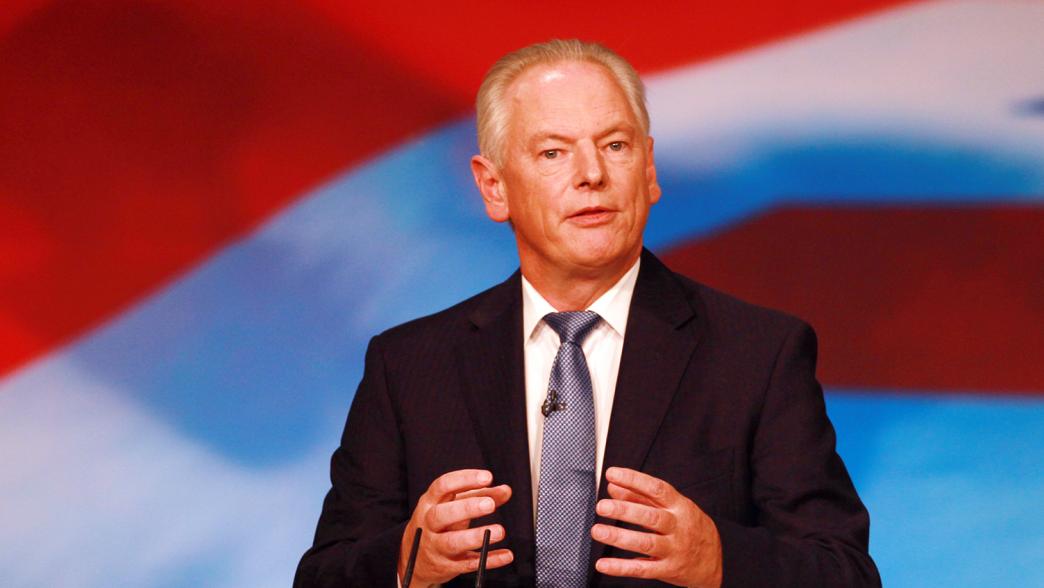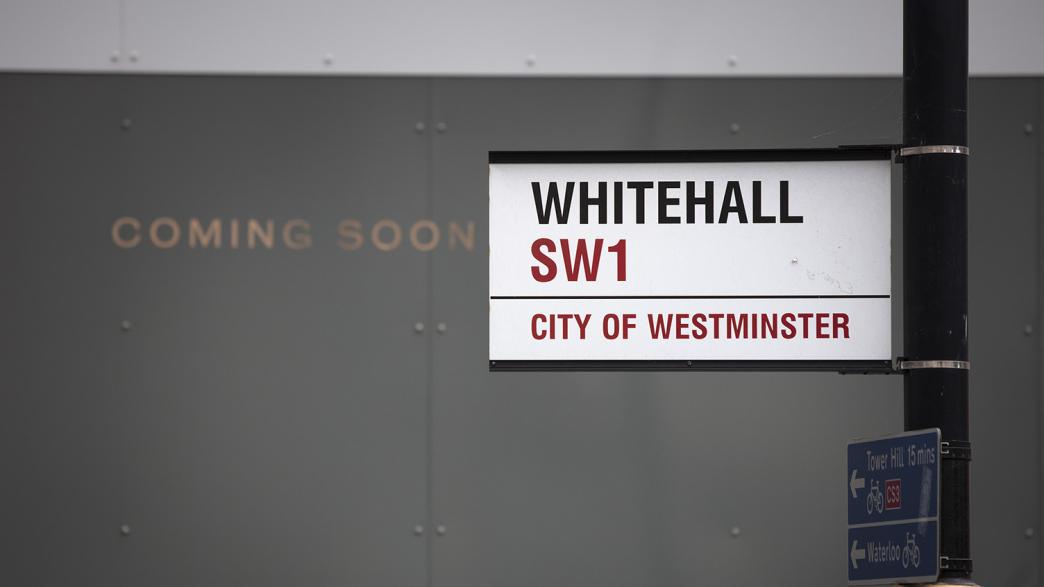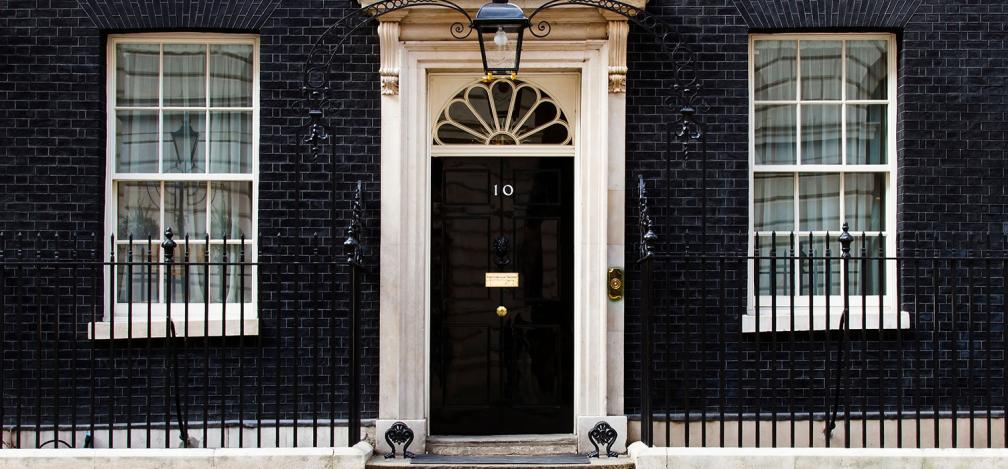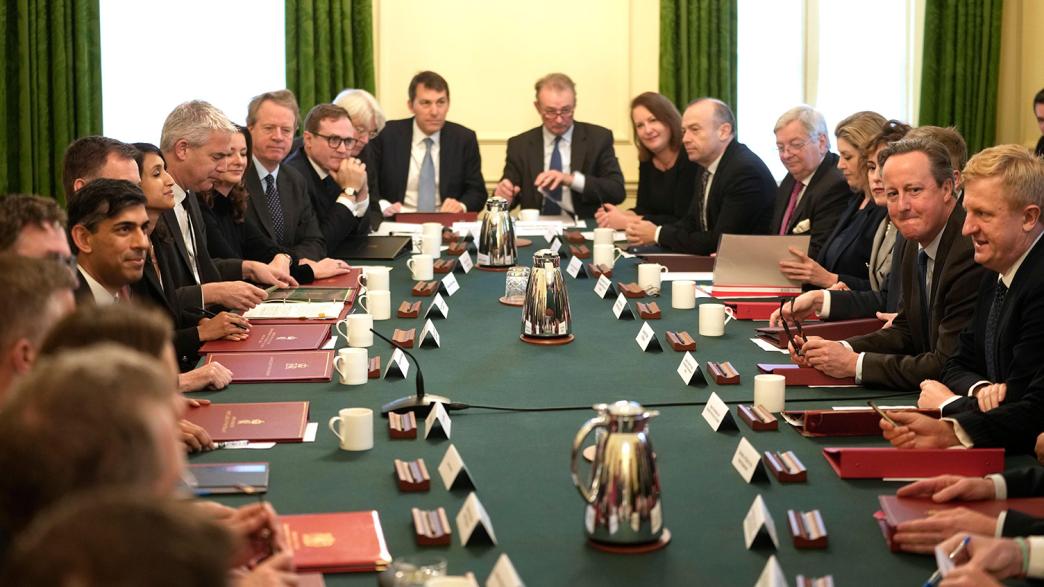IfG response to the Maude review on civil service reform
The Maude review will be an important reference document for whoever lives in No.10.

Introduction
The history of government reform is cluttered with plans, reports, strategies and even a declaration. Lord Maude, a former Cabinet Office minister and the most dedicated reformer of the civil service in recent decades, has produced a paper that usefully draws together many of the now familiar themes and threads on this subject. 9 //assets.publishing.service.gov.uk/media/6552350b8a2ed40013720d82/Independent-Review-of-Governance-and-Accountability-in-the-Civil-Service-The-Rt-Hon-Lord-Maude-of-Horsham-Final-3.pdf His Independent Review of Governance and Accountability in the Civil Service is a serious and comprehensive piece of work. His problem diagnosis is strong. His ideas for change are worthy – many are good, though some are misguided. Whether anything actually happens as a result is the question that matters most.
In July 2022 Maude was commissioned by the then minister for Brexit opportunities and government efficiency, Sir Jacob Rees-Mogg, to produce a report on the governance and accountability of the civil service. Maude was given two months. Like too many decisions taken during Rees-Mogg’s tenure in the Cabinet Office, both the timing and terms of reference were half-cocked, and Maude ignored both. In the event, the report was published 16 months later, in November 2023.
Publication coincided with a major ministerial reshuffle, which pointed to a desire to bury Maude’s ideas and a cool reception within government. A written statement by the then Cabinet Office minister Jeremy Quin described it as a “welcome contribution”, though also noted that some of its recommendations would “serve to detract from the focus on the Prime Minister’s five critical priorities”. 10 //questions-statements.parliament.uk/written-statements/detail/2023-11-13/hcws30
Our welcome is much warmer. Civil service effectiveness, governance and accountability has been a core theme of IfG work even before Maude was a minister in the Cabinet Office. His review endorses much of our diagnosis and many of our recommendations. This short report sets out the Institute for Government’s view on the Maude proposals.
Confused accountability is a problem that needs a statutory solution
Maude’s central observation matches our own – that “the arrangements for governance and accountability of the civil service are unclear, opaque and incomplete”. There is “no organised scrutiny of the way the Civil Service is managed” and it is too hard to tell whether it is delivering on its obligations. The lack of external pressure to maintain and enhance capability is a problem, and the civil service too often has “a built-in resistance to change”. These structural problems frustrate the many thousands of talented and dedicated officials working in government. Good things get done, but that can be in spite of the system rather than because of it.
The head of the civil service does not have enough authority to drive change across government, relying on “cajolery and persuasion”. And the “complete accountability that ministers have for their departments’ activities [is] out of alignment with their assumed authority to direct resources”.
Maude proposes several changes to address these problems. A formal delegation letter from the prime minister would give the head of the civil service the mandate and authority to run and reform the institution, supported by a revamped civil service board. A “reformed and strengthened” Civil Service Commission – made more independent, with a full-time staff and commissioners who are not current or former civil servants – would hold the head of the civil service accountable and conduct audits of officials’ advice, applying external pressure to the civil service to improve capability.
Both are good ideas, and strengthening the Civil Service Commission is sensible, regardless of whether it is given new powers. But the Institute has suggested a stronger way of achieving the same ends, underpinned by putting the civil service on a statutory footing. This would involve giving the head of the civil service clear legal authority – and, importantly, a duty – to maintain the government’s capability in specific areas. It would also make the civil service more accountable for the quality of its advice and operational management, addressing the problem that Maude rightly identifies with the unrealistic “complete accountability” of ministers for their departments’ activities.

Putting the civil service on a statutory footing and making it more directly accountable for the activities for which it is, in practice, solely responsible would better reflect the realities of government and give officials added incentive to improve their performance.
Maude considers our statutory solution but ultimately rejects it. He argues that it would change the relationship between ministers and the civil service and build tension between statutory obligations and the instructions of ministers. We do not accept that: the objective is to clarify accountability between ministers and civil servants and to achieve a tighter moment of decision making, not to create a hard barrier; we agree that any responsibility put on civil servants in statute would need the ‘release valve’ of a ministerial direction so that ministers could insist on a course of action.
Maude focuses much of his attention on the centre of government, and somewhat neglects the role of secretaries of state and departmental permanent secretaries. It would have been helpful to see more about how to resolve the tension between standard setting from the central Cabinet Office and the responsibilities of line departments. Our view is that responsibility for policy making and programme delivery should continue to be held by departments – but that permanent secretary accountabilities are unclear. Permanent secretaries are accountable in different ways to a secretary of state, the head of the civil service, the prime minister, and to parliament as accounting officers. Clarifying, as Maude does suggest, that it is the head of the civil service who is responsible for setting the standards of capability for the civil service would be a helpful step.
12
//committees.parliament.uk/oralevidence/13850/html
Fixing Whitehall: Is the Maude review the right plan for government reform?
The Rt Hon Lord Maude joins the IfG's Alex Thomas for an in conversation event.
Register to attend
Recruitment changes are needed – but not via more ministerial involvement
The review makes a series of recommendations to change how officials are appointed. Maude is right that reform is needed and some of his proposals are good ones. As he puts it: “The Civil Service is a people organisation and the most important task of its leadership is the appointment and management of its people.” However, he goes too far in extending ministerial involvement in civil service recruitment and is over-worried about the need to create a cordon sanitaire, where certain roles are banned from being held by career civil servants.
Ministers already influence appointments
Maude’s approach is to give ministers more input into the appointment of top civil servants. He recognises the powers that already exist. Ministers can, for the most senior jobs (and in practice for private secretary roles too) sign off job descriptions, review shortlists, meet candidates and feed in views. That is as it should be. Ministers and their top officials must work well together and ensuring ministers are properly consulted during recruitment helps achieve this.
But this is not always the case. At times ministers miss the opportunity to actively shape the process and end up complaining about appointments that they could have influenced. So Maude is right to recommend that ministers should be encouraged to participate in the appointment of permanent secretaries and directors general as fully as the current rules allow.
But other proposed solutions miss the mark. Maude argues that if ministers are dissatisfied with a deputy director, director or any other official in a “critical” role, they should be able to have them removed and “choose to manage a Civil Service appointment directly”. This process, he says, would be regulated by his strengthened Civil Service Commission. But our concern is that this mechanism is ripe for abuse – especially as if no replacement deemed acceptable is found within six weeks, the minster can make a direct personal appointment. Ministers less interested in effective government than Maude would be tempted to wait it out to reward political allies or to choose people who will tell them what they want to hear.
Ministerial frustration can be understandable. Poor performance is often badly managed in the civil service and if someone is in the wrong job ministerial priorities suffer. So Maude is right to target performance. But simplifying existing civil service dismissal and disciplinary procedures would be the place to start.
Where Maude is most misguided is in suggesting that all senior civil servants should be on four-year renewable fixed-term contracts. This would fundamentally change the incentives for senior officials to give confident, honest advice – at best incentivising pliant or conditioned behaviour and at worst threatening civil service impartiality.
It would also make the civil service a much less attractive place to work – at a time when senior civil service pay has declined by 25% in real terms and with the organisation already struggling to compete with other sectors on remuneration. The reason so few high-performing organisations run on fixed-term contracts is that it is not conducive to giving people the security they need to be constructively disruptive. Moving to a model where civil servants’ contracts would end after four years unless renewed would damage the civil service’s capability by making officials less likely to give ministers the difficult but helpful advice that is characteristic of a good decision making process.

Maude also recommends reintroducing extended ministerial offices (EMOs, introduced in 2013 while he was Cabinet Office minister before being scrapped under Theresa May). EMOs allowed ministers to appoint non-political expert policy advisers into their private office, with mixed results. Some, like former permanent secretary Clare Moriarty, praised them for allowing officials to “access a different group of people who can come in and ask questions – who see the world in a different way”.
A few ministers took up the option. Liz Truss was a “huge fan”, but others, like Lord Willetts, criticised them for creating a “second structure of mini experts within your own private office” and undermining private offices’ role as a bridge between ministers and departments.
We agree that private offices should be strengthened. But on balance we would side with Lord Willetts’ argument that appointing more expert special advisers, and making use of ministerially appointed policy advisers, is a better solution than building up EMOs, which too often isolated ministers from their departments.
Throughout Maude’s report there are several curious injunctions to keep civil servants out of the business of running the civil service. The Civil Service Commission’s “leadership and staff should not be current or former civil servants”, and “no civil servants should be involved in any way” in the recruitment of its commissioners. Interview panels should for certain jobs “be restricted to no more than one civil servant”. And perhaps most striking is that “for the next ten years, the head of the civil service should be someone most of whose previous career has been outside the civil service”.
Maude is clearly wise to the tendency of large institutions to creepingly revert to previous practices, and he is right to try to tilt the leadership and governance of the civil service towards external appointments (and to ensure external representation on recruitment panels, more on which below). But his caution over the civil service stifling reform is, if understandable, a little too sweeping. Civil servants are not a separate species. Once vital accountability changes are made, the focus needs to be on getting the right people in place, more than on which side of the officialdom divide they sit.
More movement in and out of government would be welcome
The review also looks at the nuts and bolts of ‘interchange’ in the civil service, drawing heavily on the Institute’s 2022 report Opening Up: How to strengthen the civil service through external recruitment. Maude endorses many of our recommendations, including that more external recruitment be used to increase capability and challenge groupthink; that the civil service’s recruitment process be reformed to allow this; that functional leaders be given parity of esteem with their policy colleagues; that the Advisory Committee on Business Appointments be overhauled; and that the onboarding and induction process be extended.
When it comes specifically to appointments, he is right that “there is no reliable objective test of merit – recruitment decisions are made by human beings who are judging other human beings… and a different judgement might easily be made by different human beings". Running a recruitment process that gives hiring managers, who after all are being trusted by the system to make recruitment decisions, more discretion is compatible with appointment on merit. And Maude’s suggestion that interview panels should always contain at least one member who is not a serving or recently retired civil servant is a good one, helping to ensure that panels are intellectually and professionally diverse so it is harder to recruit ‘like for like’.
Civil servants should spend longer in post
Perhaps even more vital than improving recruitment is reducing turnover. Too often civil servants move rapidly between unrelated jobs in pursuit of promotion and a pay rise. This at once limits their own expertise and undermines the civil service’s wider institutional knowledge.
Maude is right to label such churn as “extremely disruptive”. His solution is for four-year contracts to also be minimum terms but that “it should not be permissible for civil servants to apply for other jobs elsewhere in the Civil Service, or in central government organisations that are technically outside the Civil Service, without the consent of their line manager or other identified senior manager”.
Resetting expectations about length of time in post is definitely needed, and more power for managers to do this is welcome. A blanket need for approval, though, risks being an over-correction. It gives managers a stifling power over direct reports that could easily have unforeseen consequences, especially given that the incentive for managers is to optimise the short-term value of their staff. Managers should have input over when their staff move, but this would be better done via a workforce plan and blocking by exception. A requirement for managerial approval should only be considered for the most essential roles and on rare occasions.
To better approach the problem of churn we would direct Lord Maude to our 2019 report Moving On: The costs of high staff turnover in the civil service, which recommended: addressing pay problems; publishing more workforce and turnover data, strengthening HR capability, targeting interventions where staff churn was a particular problem; and building up succession planning. We would also recommend making sure that recently introduced ‘assignment durations’ of minimum terms for senior civil service (SCS) jobs are treated seriously, with more consequences for breaching them, and that moving early comes with negative reputational consequences.
The centre of government must be reformed
The review makes recommendations about how to reorganise the centre of government – No.10, the Cabinet Office and the Treasury. Maude is right to focus on this area as one of the root causes of the repeated underperformance of British premierships. The UK has the worst of both worlds here in that it is a highly centralised country with a weak centre. Fixing the centre would help make the whole of government more effective. It is a subject that the Institute’s Centre Commission is addressing, with our recommendations to be published in February 2024.
Maude’s core proposal is to replace the current institutional set-up with an Office of the Prime Minister and Cabinet (OPMC); an Office of Budget and Management (OBM), which would absorb the civil service management responsibilities of the Cabinet Office and the spending role of the Treasury; and the remaining, non-spending roles of the Treasury itself.
A more coherent ‘prime minister’s department’ is positive
Maude suggests his proposed OPMC could be created by merging the “parts of the Cabinet Office that are concerned with coordination and policy advice”, such as the brokering teams that currently sit in the Cabinet Office’s Economic and Domestic Secretariat, with the existing No.10 structure. With the prime minister would sit the cabinet secretary (no longer head of the civil service) and a powerful chief of staff, who would double as a cabinet minister from the House of Lords.
The OPMC model has advantages. It would give the prime minister more institutional levers to drive progress from the centre of government. And it would help align the policy and secretariat teams in No.10 and the Cabinet Office, who currently have distinct but often overlapping priorities, which can cause friction.
But creating an OPMC on its own would not be sufficient. There is a need to overhaul the internal structure of the prime minister’s office to drive effective cabinet government, a subject about which the IfG’s Centre Commission will have more to say in February 2024.

Maude’s model for the Treasury has drawbacks
Maude proposes to move the Treasury's expenditure function into an OBM along with the management of the civil service functions, under the leadership of a head of the civil service separate to the cabinet secretary.
This has advantages. It makes sense to bring together the ability to set the civil service’s administrative budgets with the ability to decide the size and shape of its workforce; the current artificial split between a Cabinet Office that manages the civil service workforce (including the functions) and a Treasury that determines where the money flows can create misalignment.
But there are three main risks. First, while Maude argues that an OBM would make it easier to align budgets with the government’s policy programme, especially on cross-cutting issues like net zero, his model replicates the divide between the OPMC and OBM that currently exists between No.10 and the Treasury. If the rationale for taking spending out of the Treasury is to better align it with policy, putting it in a separate department – away from policy teams, the prime minister and the cabinet secretary – does not seem the best solution.
Second, the current institutional set-up has advantages that would be lost under Maude’s model. Maude acknowledges that collaboration between OBM and HMT would be “essential” to maintain the link between macro-fiscal policy and expenditure, currently joined under one roof. It certainly would. Creating friction between the two may be a price worth paying for splitting up the Treasury, but it is a price. It would need to be carefully managed by ensuring the chancellor continued to influence and scrutinise public spending, including through cabinet committees.

Third, there is a risk that by separating the head of the civil service and cabinet secretary roles, and moving the former outside the prime minister’s inner circle, key players lose interest in civil service reform. Having the cabinet secretary as the head of the civil service alongside being the prime minister’s chief policy adviser allows them to draw the prime minister’s attention to civil service issues when they need to. A separate head of the civil service, even one leading a department with the power to control spending, might struggle to get that purchase. Similarly, being head of the civil service gives a cabinet secretary’s advice additional weight. It allows them to speak with authority not only on policy, but the organisational practicalities of how it will be implemented.
This last question is a difficult one. The arguments to keep the roles joined are strong – but it seems that the current set-up is not working as well as it might (even before factoring in the current absence of Simon Case, who holds both roles). That said, Maude is right that the roles are, in practice, quite different and require different skills. This is another area where we will have more to say when the IfG’s Centre Commission reports.
Commission on the Centre of Government
What could be done to radically improve the centre of UK government?
Find out more
Arm’s length bodies get welcome attention
Maude is right to argue for more engagement between departments and ALBs
In the review, Maude argues for more senior engagement between departments and the arm’s length bodies (ALBs) they sponsor. This is a good idea and would enhance mutual understanding as well as enabling ALBs to be better held to account. Sponsorship is a key government function, and Maude’s proposal that promotion to director general should require experience of it is a good way to increase its profile and priority.
It is less clear that the current public bodies review programme should revert to the earlier ‘triennial review’ model. The current programme is more targeted. Including sponsorship arrangements in the review process – as Maude suggests – is right, although in practice it is difficult for any review process that is largely run by sponsor departments to do that effectively. This has not been addressed by current or previous models.
Maude’s proposals to give departmental boards a greater practical role in overseeing public bodies makes sense. But giving the chairs of executive agencies seats on their sponsoring department’s board could be disproportionate for those departments with more agencies; the justice and transport departments have five each, for example, some more central to their departments’ activities than others. Since the government has committed that departmental non-executive directors should be regulated as public appointments, such a move would also reinforce the case for extending regulation to executive agency board members too, as the Institute has proposed.
Public appointments should be quicker while retaining ministerial involvement
We welcome most of Maude’s proposals on public appointments. It is particularly good to see some of our recommendations on tracking the progress of appointments, and identifying recruitment needs well in advance, be picked up. These problems are unglamorous but resolving them would improve the efficiency of the system and help to identify the causes of delays that put good candidates off.
It is also good to see endorsement of our recommendation for a chief talent officer, to help improve the pipeline of applicants and encourage them into, and through, the process – as well as the pragmatic parameters Maude proposes around direct appointments.
We agree with the review’s point that ministerial engagement in public appointments should be better facilitated. Maude cites the Institute saying that “ministerial interest seems to be the biggest factor” in delays – and we agree with him that this can be solved without excluding ministers from decision making. We proposed in Reforming Public Appointments to reduce the number of points at which an appointment should be put in front of a minister for decision during a recruitment process.
This is not to say that ministers cannot see information at many other points and may then choose to intervene by exception in some circumstances. But for expediency the train of an appointment should only be stopped waiting for decision at a few key points in the process.
Removing ALB responsibility for policy would be a mistake
We also agree with Maude that ministers’ democratic mandate must be discharged. But we are sceptical that pulling greater control of policy up from public bodies towards ministers would achieve this. Ministers are rightly in ultimate democratic control, but achieving their objectives requires delegation across the breadth of government. Much of this ‘policy’ work is highly technical, while the boundary between policy and operational matters is often blurred, meaning the more expert and front-line staff of ALBs are often best placed to manage it.
A requirement, as Maude suggests, to justify to parliament any ‘policy’ being decided in public bodies would create much contention but more importantly an increased tendency to push judgments into already overloaded ministerial inboxes. This is not a recipe for good decision making.
Rationalising the ALB landscape would be positive
Maude is rightly concerned about the complexity of the ALB landscape and argues for simplification. But he could have gone further. In 2010, the Institute published proposals that included phasing out the category ‘non-ministerial department’, which would have streamlined the landscape further and should be reconsidered by the government.
Maude is also right to call for better data on ALBs. This would be helpful for new ministers who need to understand what sits under their purview, as well as for strengthening parliamentary scrutiny – regulators and parliament is a subject to which the Institute will return soon.
Ministerial effectiveness is crucial to good government
Maude also focused on the effectiveness of ministers – another welcome stretch to his terms of reference. Many of his points matched the Institute’s concerns in recent years – most notably the diagnosis that many ministers are not appointed to their role because of subject matter expertise or relevant experience, but because they fit a particular criteria that the prime minister and chief whip need to include in the frontbench team for party management reasons. In a parliamentary democracy, this is always going to be a factor in ministerial appointments, but it should not be the only one. Maude’s proposals here would go some way to ensuring ministers are appointed because of their ability to do the job, as well as because they are from the right subset of the party.

Training should be the norm for current and prospective ministers
Maude calls for training for potential future ministers as well as those who are new in the role. This is an entirely sensible suggestion and one that would be unremarkable in almost any other realm of senior leadership. Government is the notable exception to the expectation that senior people will have been supported to develop the skills to do their job and to understand how the organisation they are in charge of actually works – which is why our IfG Academy programme offers professional development and a range of resources for current and potential ministers.
On a related note, ministers very seldom have specific objectives they are supposed to achieve in post. Maude suggests that ministers in charge of departments should publish an annual statement of what they intend to achieve in the coming year – clear objectives are again the norm for leaders in other sectors and this approach is sensible: for the public, who can see what they can expect from their government; for the prime minister to assess the value brought by their team; and for ministers themselves, who can use the publication to drive focus and commitment throughout their department.
Maude is right to criticise constant ministerial turnover
The review is also right to criticise constantly changing ministerial responsibilities as bad for government. In the most recent reshuffle Lee Rowley became the 16th housing minister since 2010, and Victoria Atkins the fifth health secretary since Matt Hancock resigned in June 2021. Previous Institute research has shown that ministerial churn makes it harder to resolve long-term issues and in the context of a widely acknowledged housing crisis and extraordinary NHS pressures, having key posts like these fall victim to a ministerial merry-go-round is not conducive to solving the big problems faced by the country.
So Maude is right to say that there should be an expectation that ministers serve at least two years in post, with three years for secretaries of state – barring controversies, changes in personal circumstances or clear underperformance. However, this change will be as cultural as procedural, and will require prime ministers and their advisers to wean themselves off reshuffles (and the threat of reshuffles) as a party management tool, and to learn to focus on what they actually want their ministers to achieve.

Special advisers should be better supported
Maude also comments on the important role that special advisers (SpAds) play in government and calls for greater support for them as well, in the form of proper recruitment processes and training once they are in post. As he says, much of this must be the responsibility of the political parties, as they will always be the main route for recruiting and developing potential future advisers. But the government machine could help ministers think about what they want from their advisers and how best to recruit them, as well as what training they need to be good at the job once they start. Again, the Institute has made a similar call for training for SpAds in the past and we very much hope that this important change will be delivered.
Only the prime minister can change ministerial culture
Ultimately the prime minister is responsible for making these changes. If they (and the leader of the opposition) set out a clear expectation that their ambitious MPs should access support to understand what it means to be an effective minister, and demand more professional SpAd (or PAD, the opposition equivalent) recruitment, it will happen. But if they remain content to make appointments and move people around based mainly on party management, rather than giving sufficient weight to good government, Maude’s proposals will gather dust.
Conclusion
The Maude review is welcome. At the IfG we almost entirely agree with its analysis of the problems and endorse many of its solutions.
One of the points that Maude is at pains to stress is that much of what he says – for example, around reducing the excessive turnover of officials – is uncontroversial. This, along with the similarities between the government’s Declaration on Government Reform and Labour’s Brown Commission, should give both political parties and senior officials licence to work together to solve issues that sooner or later they will encounter in government and that affect us all.
Some proposals, like building a new centre of government, rely on key players knowing how they want to run their governments. The principles of good organisation are enduring but one of the reasons the attempted changes to the centre of government during Boris Johnson’s premiership never stuck is that there was never clarity, not least in the prime minister’s own mind, about what should actually happen.
British politics is on an election footing, with a poll expected within the year. There is still time for the newly appointed minister of the Cabinet Office, John Glen, to pursue important priorities – not least in continuing his predecessor Jeremy Quin’s priorities. But big changes to the way government works will probably have to wait. When the time comes, the Maude review will be an important reference document for whoever then lives in No.10.
- Keywords
- Civil servants Civil service reform Government reform Arm's-length bodies Cabinet Cabinet committees Government reshuffle Accountability
- Political party
- Conservative
- Administration
- Sunak government
- Department
- Cabinet Office Number 10
- Public figures
- Rishi Sunak Simon Case
- Publisher
- Institute for Government